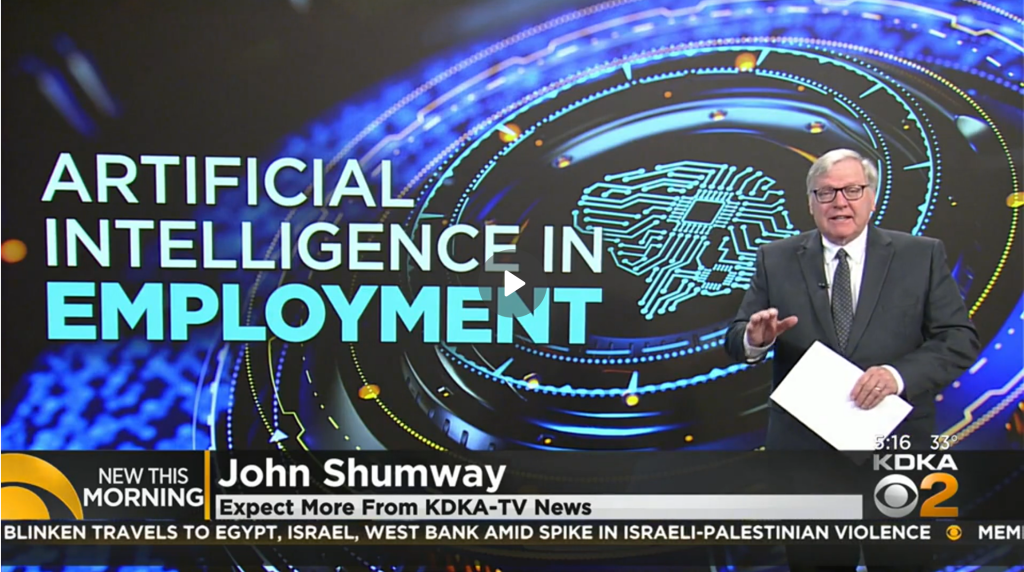ORIGINAL CONTENT NOTICE:
Article originally posted on 1/30/2023 on CBS News Pittsburgh
By John Shumway
PITTSBURGH (KDKA) — 2023 is shaping up to be a rough year for employment in some areas, with layoffs in big tech companies like Google, Microsoft, and IBM making headlines.
KDKA’s John Shumway is here with a disconcerting trend in the decision-making process of who continues to work.
It turns out that your good relationships at work may not be the only determining factor, no matter how nice a person you are or how good your relationship may be with your boss.
Artificial intelligence in workplace human resources has exploded over the last decade or so.

“The focus of that has been on helping make hiring decisions, retention decisions, and even advancement within the workplace decisions,” said Zack Bombatch, Employment Attorney with Disrupt HR.
Bombatch says that AI information analysis is being used more and more, specifically when it comes to layoffs and reductions in workforce.
“I don’t want some algorithm saying I’m not worth being here,” Bombatch said. “So really, the algorithm or the machine should not be making the ultimate decision. All that machine learning really should be doing is highlighting patterns with respect to the data.”
In a recent Capterra survey of U.S. employers, 98% said they’ll use software and algorithms to reduce labor cost this year.
Of those, 35% said they’ll rely mostly or solely on the data compiled by artificial intelligence, while 20% said they will still go with their gut in making job decisions.
“So you really want to make it as objective as possible. So you have to give the double check of the data once it’s been analyzed by the machine as well,” Bombatch said.
There’s no emotion in artificial intelligence. It’s all about calculations and how you rank the data it’s collecting.
When it comes to the kind of data that the AI is looking at, it can include anything and everything from productivity and however that is measured to attendance and punctuality.
Bombatch says to protect yourself, you need to know what the AI is looking for.
“It’s good to know what your organization values and when your organization measures for performance, Bombatch said. And then striving to making sure you’re hitting those measurable goals.”
Bombatch suggests having a conversation with your boss or HR department so that you can make adjustments before they start making decisions.
“So, hopefully you won’t be an outlier or a part of it have a trajectory that might be susceptible to layoffs,” Bombatch said.
Bombatch says AI is a mirror, both good and bad.
“The AI of the algorithm is not out to get you,” Bombatch said. “All that algorithm is doing is more efficiently wading through the data.”
In fact, AI data crunching could also lead to advancements or raises, so it’s a double-edged sword.
A recent survey found that while 98% of employers use AI in some form in their employment decisions, but that same survey indicated that only 41% are confident the data is good enough to make the decisions.
